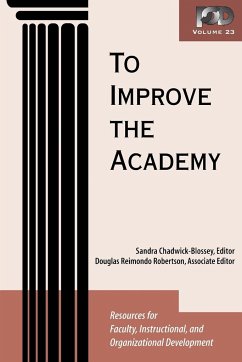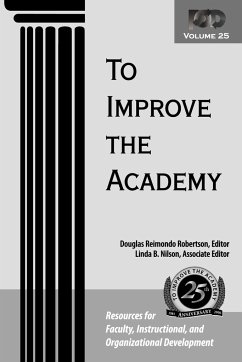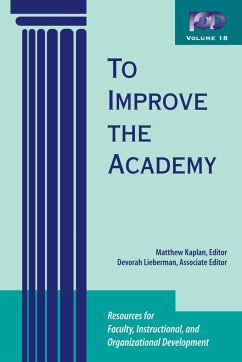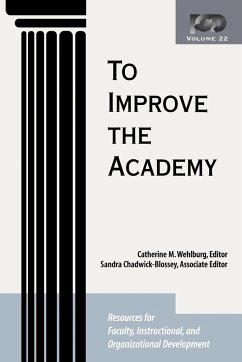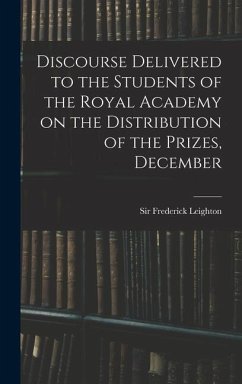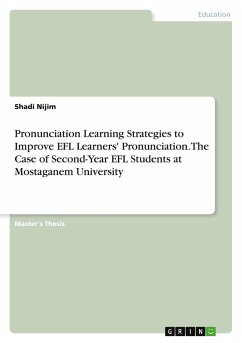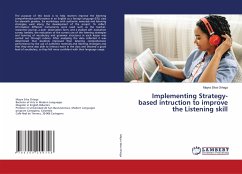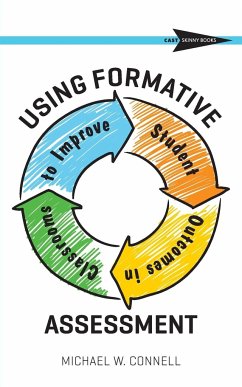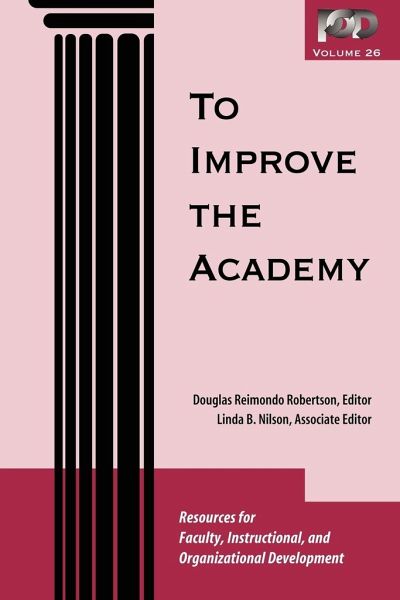
To Improve the Academy
Resources for Faculty, Instructional, and Organizational Development
Herausgeber: Reimondo Robertson, Douglas; Nilson, Linda Burzotta
Versandkostenfrei!
Versandfertig in über 4 Wochen
37,99 €
inkl. MwSt.

PAYBACK Punkte
19 °P sammeln!
To Improve the Academy Volume 26 An annual publication of the Professional and Organizational Development Network in Higher Education (POD), To Improve the Academy offers a resource for improvement in higher education to faculty and instructional development staff, department chairs, faculty, deans, student services staff, chief academic officers, and educational consultants. Contents include: * Evaluating teaching * Teaching awards in research universities * Individual inquiry, collaborative investigation, and collective scholarship * The scholarship of teaching and learning and focused asses...
To Improve the Academy Volume 26 An annual publication of the Professional and Organizational Development Network in Higher Education (POD), To Improve the Academy offers a resource for improvement in higher education to faculty and instructional development staff, department chairs, faculty, deans, student services staff, chief academic officers, and educational consultants. Contents include: * Evaluating teaching * Teaching awards in research universities * Individual inquiry, collaborative investigation, and collective scholarship * The scholarship of teaching and learning and focused assessments * Supporting the scholarship of teaching and learning at liberal arts colleges * Grounded theory research in faculty development * Assessment of a faculty learning community program * Stereotype threat * Inclusive teaching resources for science, technology, engineering, and math * Marketing plans for faculty development * Faculty development at small and liberal arts colleges * The importance of the faculty status for faculty developers * Co-teaching as a faculty development model * Promoting learning-focused teaching * Team mentoring * A research-based rubric for developing statements of teaching philosophy * Meeting the challenges of integrative learning * The teaching resource portfolio * Reflecting and writing about our teaching * Using technology for teaching in higher education





